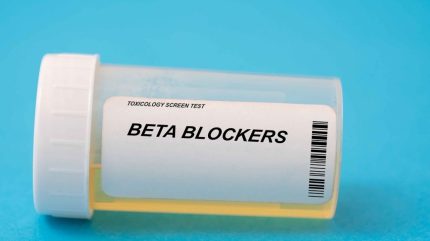
A shift in the beta-blocker treatment paradigm has arrived with the changing myocardial infarction treatment landscape, said a researcher at the European Society of Cardiology (ESC) Congress, held from 31 August to 2 September.
Over the past 40 years, the research space has operated on an understanding that immediate inhibition by beta-blockers reduces left ventricular rupture, and further myocardial infarction, said Dr. Milton Packer, distinguished scholar in cardiovascular science at Baylor University Medical Center, Dallas. Additionally, the belief was that delayed long-term blockade can lead to left ventricular dysfunction, he said.
Beta-blockers are a class of drugs that act by inhibiting the actions of hormones such as adrenaline to slow down the heart. Commonly used beta blockers include Abbott’s Tenormin (atenolol), MSD’s Cardicor (bisoprolol), and GSK’s Trandate (labetalol).
However, Packer explained that the beta blocker response has changed as percutaneous interventions, reperfusion therapies, antiplatelet drugs and more have entered the treatment landscape for myocardial infarction.
At the ongoing ESC Congress talk titled “Should we give beta blockers post-myocardial infarction?” Packer said that questions have been raised surrounding the use of the drugs in patients with myocardial infarction and preserved ejection fraction, referencing the Phase IIII REDUCE-AMI study (NCT03278509).
REDUCE-AMI, which was funded by the Swedish Research Council, tested the use of beta-blockers after myocardial infarction and preserved ejection fraction. The study found that for patients with acute myocardial infarction who underwent early coronary angiography and had preserved left ventricular ejection fraction, long-term beta-blocker treatment did not lower the risk of death from any cause or new myocardial infarctions compared to no beta-blocker use.
Access the most comprehensive Company Profiles on the market, powered by GlobalData. Save hours of research. Gain competitive edge.

Your download email will arrive shortly
We are confident about the unique quality of our Company Profiles. However, we want you to make the most beneficial decision for your business, so we offer a free sample that you can download by submitting the below form
By GlobalData
Despite the conclusion of the REDUCE-AMI study, Packer highlighted the fact that researchers have only investigated and proven the effectiveness of non-selective beta blockers in post-myocardial infarction trials, so further research is required. He added that physicians will have to take into account the degree of beta-blockade in future treatment regimens.

Sign up for our daily news round-up!
Give your business an edge with our leading industry insights.
